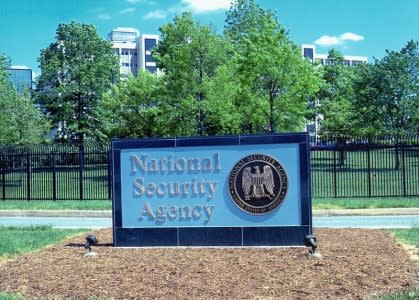Judge says NSA phone program violates Fourth Amendment
The National Security Agency’s massive program to collect basic phone information about Americans is probably unconstitutional, a federal judge said in a decision he expects to be appealed.
U.S. District Court Judge Richard Leon said the Justice Department failed to prove its case that collecting phone metadata helped to stop at least one terrorist attack.
Link: Read The Ruling
“The court concludes that plaintiffs have standing to challenge the constitutionality of the government’s bulk collection and querying of phone record metadata, that they have demonstrated a substantial likelihood of success on the merits of their Fourth Amendment claim and that they will suffer irreparable harm absent…relief,” Leon said in his 68-page decision.
Larry Klayman, a former Reagan administration lawyer who leads the group Freedom Watch, brought the case on behalf of himself and another client.
The Justice Department had argued that Klayman lacked standing because he couldn’t prove definitively that the NSA looked at his phone or Internet records. It also said that the basic phone data of citizens wasn’t protected under the Fourth Amendment because it was routinely available to telephone companies.
Leon agreed to Klayman’s request for a preliminary injunction to block the phone data collection program, but Leon stayed his ruling pending an expected government appeal and “significant national security interests at stake in this case and the novelty of the constitutional issues.”
The program previously had been approved by the secret Foreign Intelligence Surveillance Act court.
Leon said a precedent set in the 1979 Supreme Court ruling in Smith v. Maryland didn’t apply to Klayman’s case.
“The ubiquity of phones has dramatically altered the quantity of information that is now available and, more importantly, what that information can tell the Government about people’s lives,” Leon said. “Put simply, people in 2013 have an entirely different relationship with phones than they did 34 years ago. “
Leon said his role wasn’t to rule on the constitutionality of the Smith precedent, but to decide in the specific case of the NSA if there was a justification for collecting five years’ of phone records without probable cause and case-by-case judicial approval. The decision also doesn’t affect the NSA’s ability to monitor Internet data.
Leon also said he expects the appeals process to take at least six months.
Recent Constitution Daily Stories
Constitution Check: Is cohabitation the next constitutional right?
Reality TV star may get his day in front of the Supreme Court
Five items Congress deleted from Madison’s original Bill of Rights


